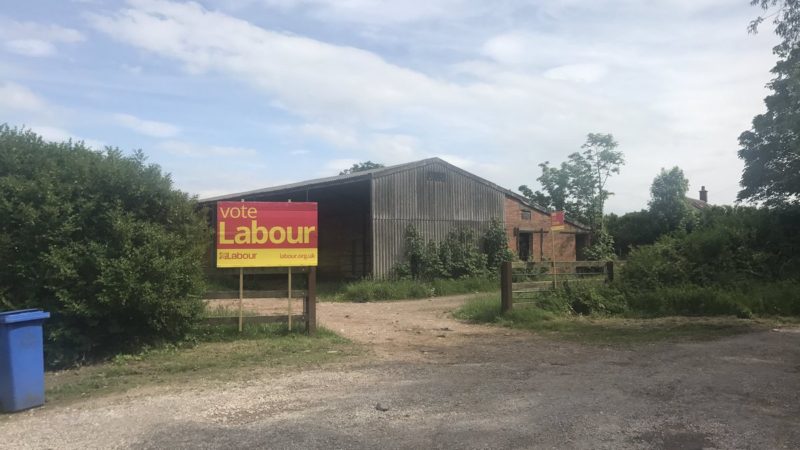
I am the chair of the Rutland and Melton CLP, which is a constituency with a Tory majority of nearly 27,000. In the general election last month, the Conservative vote share fell slightly while Labour came second. I fully acknowledge that it is an uphill battle to win here – but that doesn’t mean Labour activists cannot make a difference.
Constituencies like ours are often stereotyped as being a sea of wealthy villages. But while there is substantial wealth, there are also significant pockets of deprivation, especially in the market towns of Oakham and Melton.
The constituency is made up of three local councils and currently Labour has zero councillors. We came very close to gaining some in the May 2019 local elections but the Greens caused a split in the anti-Tory vote. We’ve seen 50 people join the local party since the general election, however, and we have a growing group of active campaigners who are keen to make a difference to people’s lives.
During the campaign I heard many comments of disillusionment along the lines of “politicians are all the same, I don’t trust any of them” and “I’m not voting as it will make no difference”. These voices were strongest in the poorest areas of the constituency.
What we need is to reconnect with voters and show that the Labour Party is not part of the establishment. We must make clear that we truly represent the working class and those voters who have suffered most since 2010 – and who will once again be most in the firing line over the next five years.
You may well ask, what is the point of doing anything in a constituency where the Tories have such a large majority? My answer is that there are many ways in which we can make a positive difference to people’s lives without being in elected office. Here is my simple three point plan:
1. Community organising
We need much more community organising. This is essential to protecting people against the harsh realities of Tory rule. I would like to see us run a drop-in advice centre in a local community forum; we have many experts in our CLP who can provide guidance on things like universal credit, housing and legal issues.
Such a centre would also provide an opportunity to listen to voters about their problems and concerns, enabling Labour-led, local campaigning on these issues; in the past year we have worked with community groups to fight the closure of a local nursery and the reduction in rural bus routes.
We get virtually no support from the Labour regional or national offices and so an element of this will entail appealing to them for greater support.
2. Political education
I fully acknowledge that many voters are less engaged and informed about politics and economics when compared to most political activists. As a teacher, I am acutely aware that this is not helped by a total lack of political and economic education in our schools.
Locally, we can play a part in correcting this by running free courses on how our political and economic system works. The course will have to focus on the truth, as it is only with accurate information that the level of engagement in our democratic process and strength of debate can be heightened.
3. Social media training
We need Labour head office to issue training on how to use social media, especially Facebook, more effectively. This is essential if we are to fight against a national press – which is largely a mouthpiece for the Conservative Party press office – and the Tory lies on Facebook.
The Tories clearly ran an extremely effective social media campaign during the election and we need to start matching this both locally and nationally. This should be something that we are doing every day for the next five years.
We cannot define our success solely through election results. Although gaining representation on the local councils is an important step in improving the socio-economic conditions in the constituency, we can also bring about progress by extra-parliamentary means as outlined above. Over the next five years as activists we cannot simply stand by and do nothing. We can make a difference even in a Tory heartland.




More from LabourList
‘What Batley and Spen taught me about standing up to divisive politics’
‘Security in the 21st century means more than just defence’
‘Better the devil you know’: what Gorton and Denton voters say about by-election